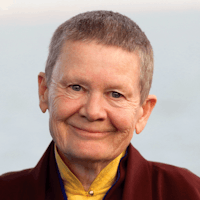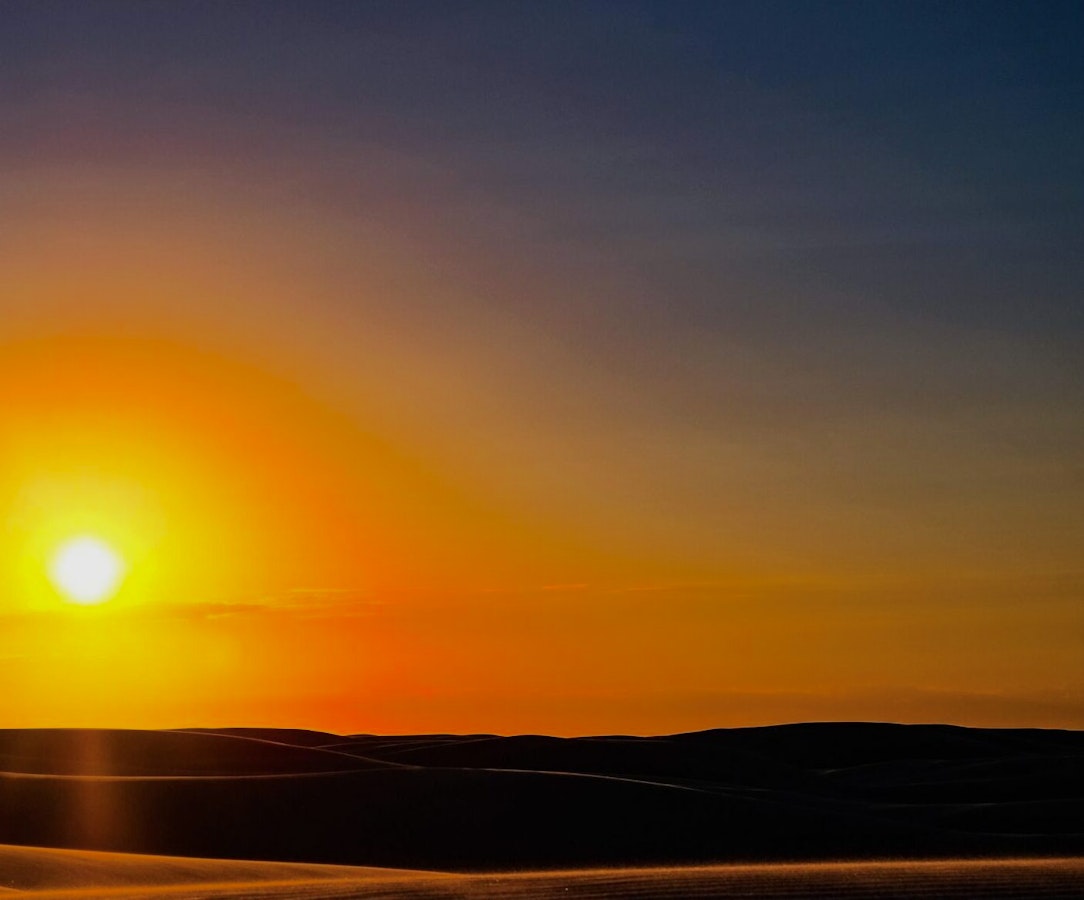Right now in the very instant of groundlessness is the seed of taking care of those who need our care and of discovering our goodness.
Pema Chödrön

Discovering Our Goodness
Topic: Overcoming Adversity
Things falling apart is a kind of testing and also a kind of healing. We think that the point is to pass the test or to overcome the problem, but the truth is that things don’t really get solved. They come together and they fall apart. Then they come together again and fall apart again. It’s just like that. The healing comes from letting there be room for all of this to happen: room for grief, for relief, for misery, for joy…
The very first noble truth of the Buddha points out that suffering is inevitable for human beings as long as we believe that things last—that they don’t disintegrate, that they can be counted on to satisfy our hunger for security. From this point of view, the only time we ever know what’s really going on is when the rug’s been pulled out and we can’t find anywhere to land. We use these situations either to wake ourselves up or to put ourselves to sleep. Right now in the very instant of groundlessness is the seed of taking care of those who need our care and of discovering our goodness.
Pema Chödrön, born Deirdre Blomfield-Brown on July 14, 1936, in New York City, grew up on a farm in New Jersey. She attended Miss Porter's School before earning a degree in English literature from Sarah Lawrence College and a master’s in elementary education from the University of California, Berkeley. She married at 21 and had two children before experiencing two divorces. Her spiritual journey led her to study Buddhism with Lama Chime Rinpoche in London and Chögyam Trungpa Rinpoche in the United States. In 1974, she was ordained as a novice nun by the Sixteenth Gyalwa Karmapa, Rangjung Rigpe Dorje, and in 1981, became the first American woman fully ordained in the Vajrayana tradition.
Chödrön played a key role in bringing Tibetan Buddhism to the West. In the early 1980s, Trungpa Rinpoche appointed her director of the Boulder Shambhala Center in Colorado. She later moved to Gampo Abbey in Nova Scotia, the first Tibetan Buddhist monastery in North America for Western students, becoming its director in 1986. Recognized as an acharya (senior teacher) in 1993, she continued teaching despite health challenges, including chronic fatigue syndrome. Her books, such as When Things Fall Apart (1996) and No Time to Lose (2005), explore resilience, mindfulness, and compassion, emphasizing shenpa, the habitual grasping that leads to suffering.
In 2020, Chödrön retired from her role as acharya within Shambhala International, citing concerns over the organization’s direction. She continues to teach, lead retreats, and study with her teacher, Dzigar Kongtrul Rinpoche. Recognized for her contributions to Buddhist practice, she received the Global Bhikkhuni Award in 2016. Though she stepped back from institutional leadership, she remains a guiding voice in contemporary Buddhism, emphasizing the power of mindfulness and compassion in daily life.
When Things Fall Apart
Chodron, Pema. When Things Fall Apart. Shambhala, 1997 [Pema Chödrön, When Things Fall Apart: Heart Advice for Difficult Times] pp. 8-9.

Pema Chödrön
Theme: Adversity

About This Pema Chödrön Quotation [Commentary]
Pema Chödrön names “things falling apart” as “a kind of testing and also a kind of healing.” When we think the point is “to pass the test or to overcome the problem,” we miss “the truth”: “things don’t really get solved. They come together and they fall apart. Then they come together again and fall apart again.” The healing, she says, “comes from letting there be room for all of this to happen”—“room for grief, for relief, for misery, for joy.” In adversity, this “room” keeps us from tightening around experience and lets life be as it is.
She connects this to “the very first noble truth of the Buddha”: “suffering is inevitable for human beings as long as we believe that things last—that they don’t disintegrate, that they can be counted on to satisfy our hunger for security.” When “the rug’s been pulled out and we can’t find anywhere to land,” she says, “the only time we ever know what’s really going on” is right there, in that exposure, without the usual supports. Adversity shows where we still demand that life “can be counted on,” and it also shows what happens when we stop insisting on that.
Pema Chödrön makes the choice simple: “We use these situations either to wake ourselves up or to put ourselves to sleep.” Then she points to what can begin in the same instant: “Right now in the very instant of groundlessness is the seed of taking care of those who need our care and of discovering our goodness.” The “seed” is not elsewhere or later—it is “right now,” as we stay with “groundlessness,” allow “room,” and let care arise for others and for our own human goodness.
On Being with Krista Tippett: Devendra Banhart ‘When Things Fall Apart’ [Excerpt]
Tippett: So maybe I’ll read a few of these parts from “When Things Fall Apart,” just because I just want to read them and see if they—they struck me, when I was getting ready. “Things falling apart is a kind of testing and also a kind of healing. We think that the point is to pass the test or to overcome the problem, but the truth is that things don’t really get solved. They come together and they fall apart. Then they come together again and fall apart again. It’s just like that. The healing comes from letting there be room for all of this to happen: room for grief, for relief, for misery, for joy.”
A little bit later on, she says, “The only time we ever know what’s really going on … the only time we ever know what’s really going on—is when the rug’s been pulled out and we can’t find anywhere to land. We use these situations either to wake ourselves up or to put ourselves to sleep. Right now — in the very instant of groundlessness—is the seed of taking care of those who need our care and of discovering our goodness.”
Banhart: Amen. [laughs] That passage is perfect. Perfect.
And there’s also something really, really hopeful, in that when you initially read, “Things come together, and they fall apart,” there’s that sorrow—“No, I don’t want it to fall apart. I want to hold onto that good thing.” But then look at it inversely, and it’s like, this time will pass. This is gonna fall apart, too; this thing we’re going through, this pandemic, it will fall apart.
Tippett: [laughs] The falling apart will fall apart, too.
Banhart: So that’s nice. We can embrace, we can celebrate that, because it’s a fact. Things fall apart. [laughs].
Tippett: Devendra Banhart is a singer-songwriter and visual artist. He’s released ten albums including Rejoicing in the Hands, and most recently, Ma.
Resources
Related Quotes
Copyright © 2017 – 2026 LuminaryQuotes.com About Us